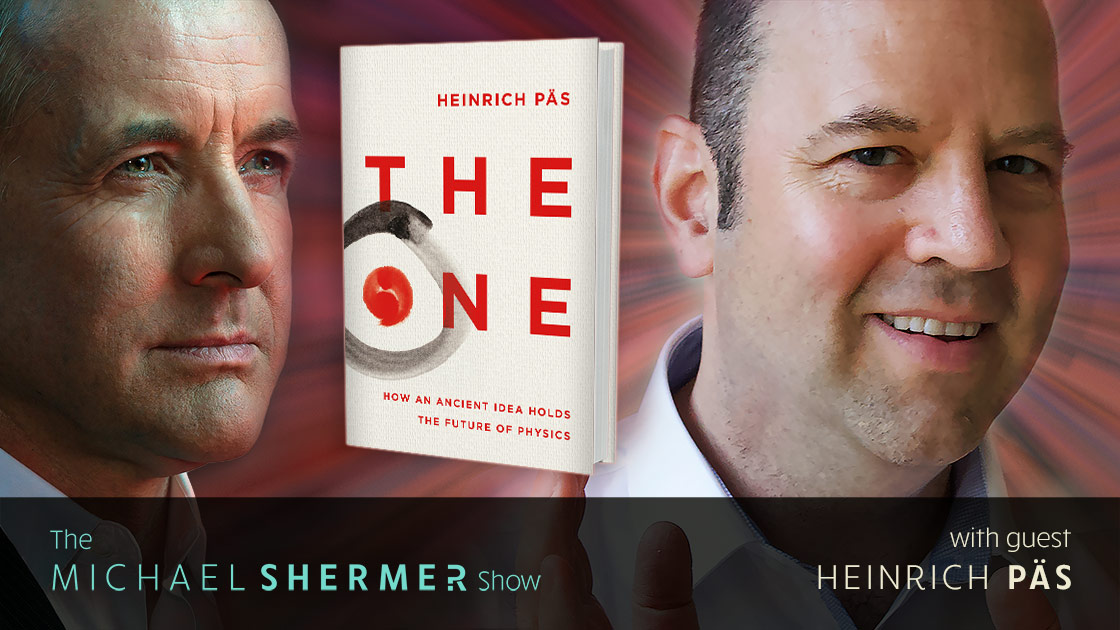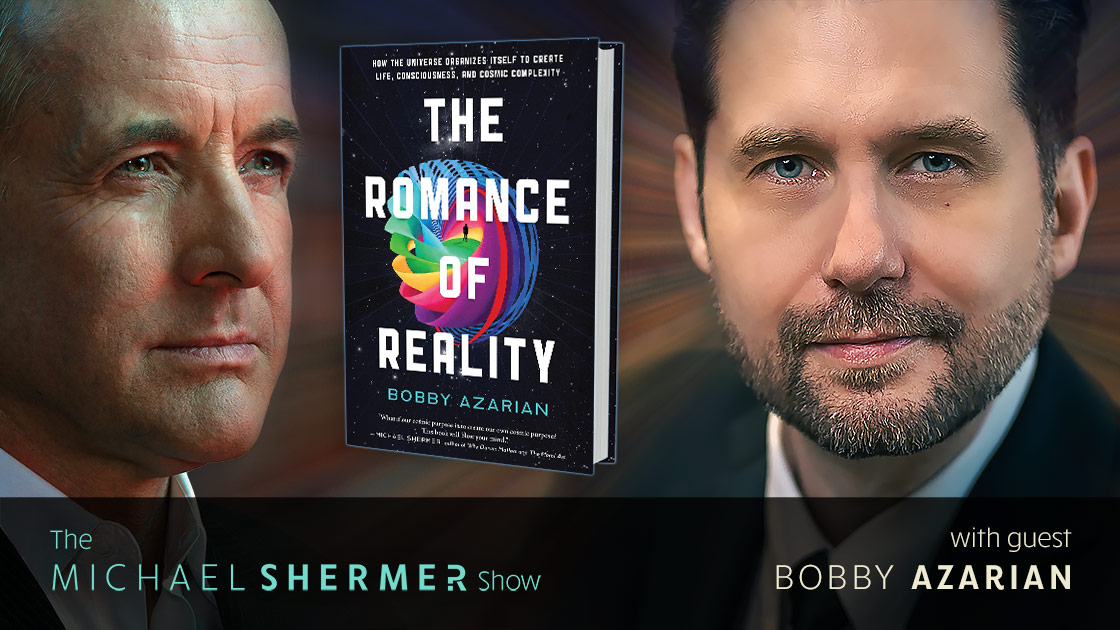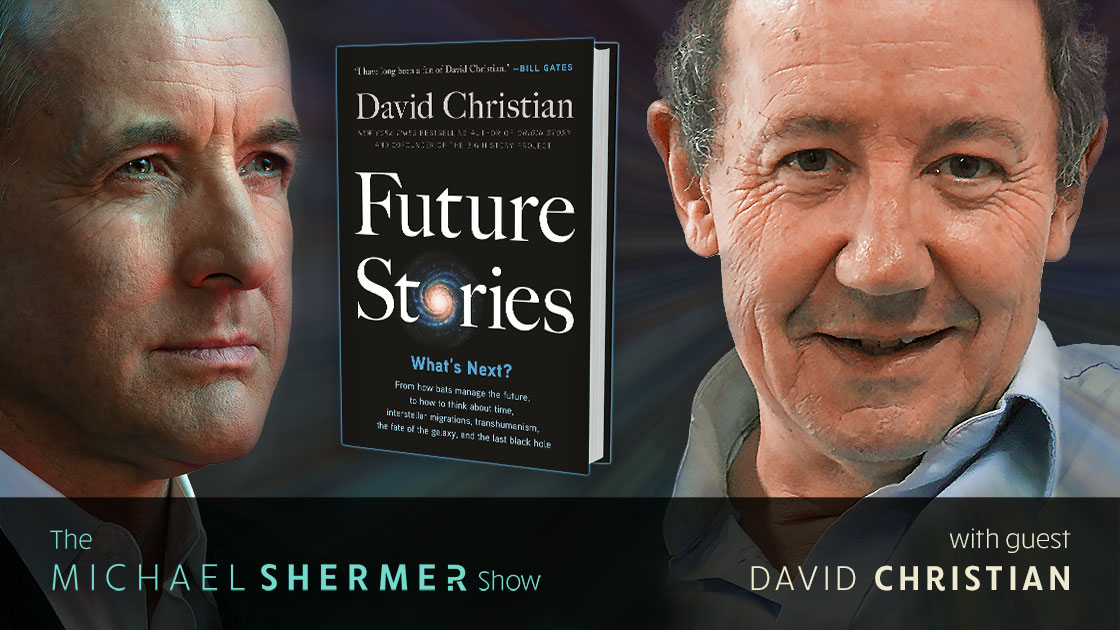second law of thermodynamics

Entropy keeps the arrow of time moving; today is less ordered than yesterday, and this is certain. If we extrapolate this concept backwards, through our scientific narrative to the origins of the universe, then we must postdict a universe that was once ordered only through its lack of movement, which means it was frozen. But even then, as Galileo once said of the Earth, eppur si muove, but it does move. And if it moves, it creates heat, and understanding…

Shermer and Päs discuss: monism vs. dualism • What is time? • What is a field? • Is math all there is? Is math universal? • the double-slit experiment • superposition • metaphors in science • limitations of models and theories of reality • limitations of analogies between western physics and eastern mysticism • What banged the Big Bang? • Are we living in a matrix? • the Second Laws of Thermodynamics and directionality in nature • Model Dependent Realism • string theory, the multiverse, consciousness, the origin of the universe, and why…

Shermer and Azarian discuss: laws of thermodynamics and directionality • how complexity formed after the Big Bang • laws of nature: discovered or created or both? • Stephen Jay Gould and contingency vs. necessitating laws of nature • convergent evolution and directionality in evolution • the left wall of simplicity • leading theories for the origin of life • complexity theory and emergence • consciousness, the self, and other minds • free will, determinism, compatibilism, panpsychism • Is there purpose…

The future is uncertain, a bit spooky, possibly dangerous, maybe wonderful. We cope with this never-ending uncertainty by telling stories about the future: future stories. How do we construct those stories? Where is the future, the place where we set those stories? Can we trust our future stories? And what sort of futures do they show us? David Christian is renowned for pioneering the emerging discipline of Big History, which surveys the whole of the past. In this conversation, he…

In this article, originally published in Quillette on Halloween, October 31, 2019, Dr. Shermer argues that patternicity, agenticity, pessimism, the negativity bias, and the Second Law of Thermodynamics provides a deeper explanation for why conspiracy theories are so popular and enduring. The article is based on Dr. Shermer’s new course from Audible and The Teaching Company on Conspiracies and Conspiracy Theories.
In Science Salon # 90 Michael Shermer speaks with world renowned biological anthropologist Mel Konner who examines the nature of human nature, including (and especially) in his new book on the nature of religiosity. PLUS: In an article originally published in Quillette on Halloween, October 31, 2019, Dr. Shermer argues that patternicity, agenticity, pessimism, the negativity bias, and the Second Law of Thermodynamics provides a deeper explanation for why conspiracy theories are so popular and enduring. The article is based…













